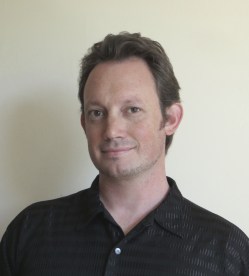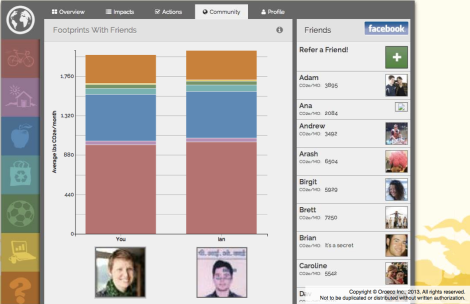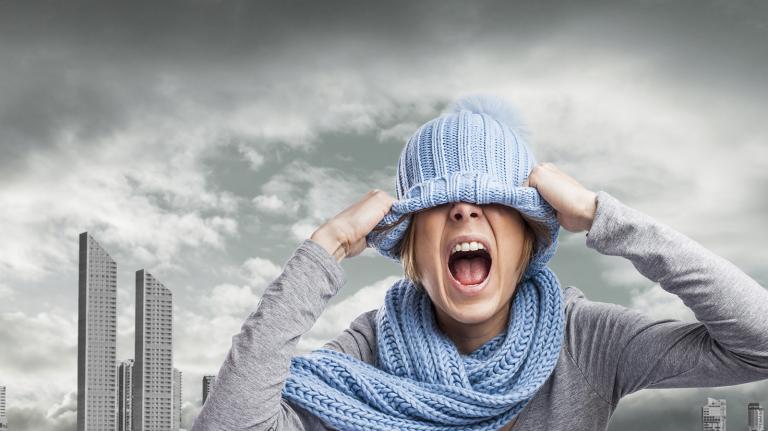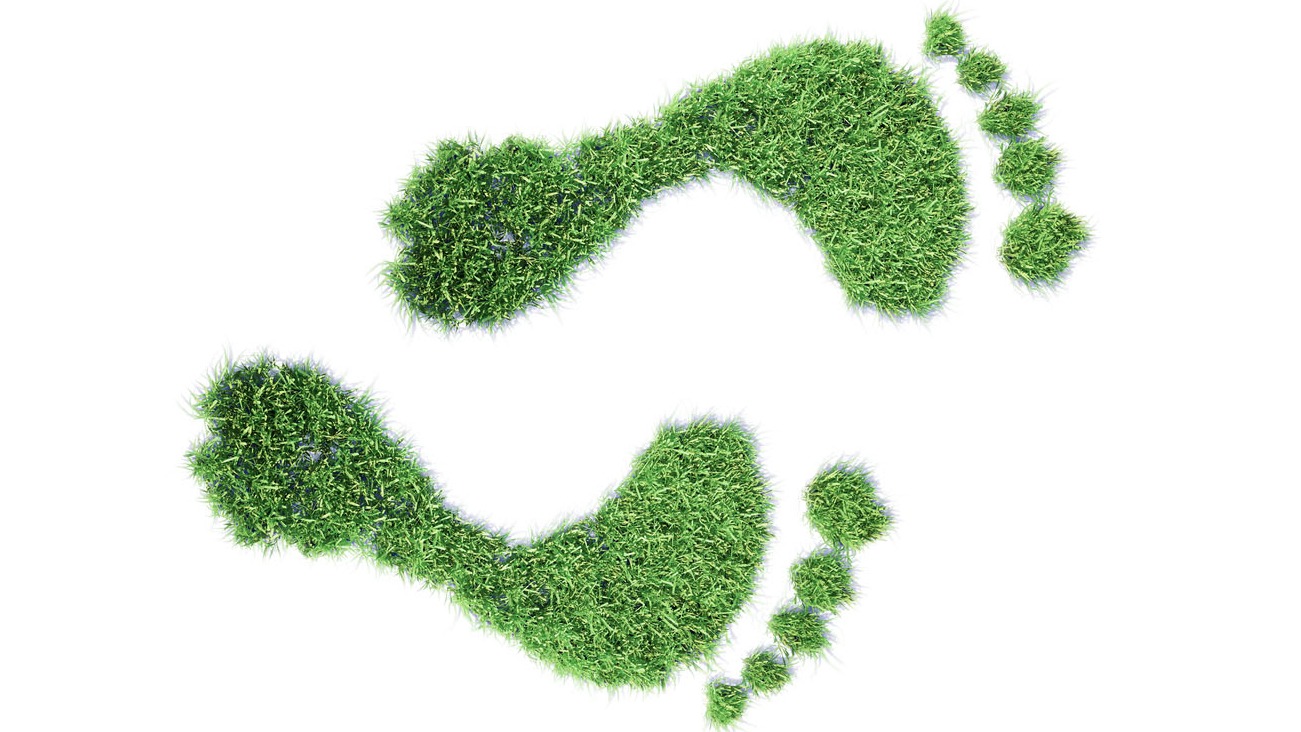Ian Monroe wants you to beat your Facebook friends at a new game: Who has the lowest carbon footprint?
Monroe is the CEO of Oroeco, a recently launched web app that tracks a user’s personal impact on climate change. The app not only helps you quantify your own footprint — based on your spending habits, made possible through linking up with Mint.com — but by logging in with Facebook it’ll allow you to compare your carbon sins with those of your virtual community. Ultimately, Monroe wants to motivate users to emit a little (or a lot) less greenhouse gas. In other words, go ahead and feel green — with envy, that is.

Ian Monroe.
Grist interviewed Monroe about changing consumer behavior, the family business as inspiration, and the group that turns out to be some of the worst CO2 culprits (hint: We’re looking at you, world-traveled greenies). Here’s an edited and condensed version of what he had to say:
On green misconceptions:
Something that comes as a shock to a lot of our users: The average person who says they care about climate change actually has a substantially worse than average footprint. Generally that’s because they tend to have a bit more money, and they tend to be people who like to think of themselves as multicultural and like to get out and see the world. Which means that they’re flying around a lot, and all that flying generally outweighs any other green lifestyle choices that they’ve made. You have a lot of people who are using reusable bags and water bottles, driving a Prius, maybe eating a bit more of a veggie friendly diet. But then they’re flying to Bali or South Africa or something once a year. They end up having a larger carbon footprint than a conservative guy who drives an SUV in the suburbs of Atlanta but doesn’t fly anywhere.
On changing behavior:
At its most fundamental level, Oroeco is a service that automatically tracks your impacts on climate change, and then rewards you for helping to be part of the solution. We’re trying to leverage what’s already out there in terms of data, information, technology, social media, and what we know about behavioral psychology. I really think the vast majority of us want to be good people. So by making our footprints visible, we’re hoping to nudge toward a lot more sustainable behaviors on a regular basis. We think this sort of information technology can be a big part of scaling up change from the personal level to the community level to the societal level, and really drive a bottom-up solution to climate change.

Oroeco helps you make sense of your CO2 footprint by comparing it with the ones of your friends.
On making the invisible visible:
The first thing we’re tackling is awareness. Taking something that has been invisible — your personal carbon footprint — and making it visible. “Pounds of CO2” — that’s pretty meaningless, even for those of us who have been working in climate for a long time. What I want to know is how am I doing versus what’s normal, how am I doing versus what my friends are doing, how am I doing versus what’s actually needed to solve climate change — and versus what’s actually achievable.
And then, the question is what can I actually do about my footprint. We help answer that by giving about 50 tips that are personalized based on your location and your data — and by how you can save money and reduce emissions at the same time.
On the family farm:
I grew up on a small farm in Mendocino County, Calif., a couple of hours north of San Francisco. My family’s been farming for three generations there, and we’ve definitely seen the area get hit by drought and wildfires with an increasing intensity. That was my initial push to work on climate change.
On walking the walk:
Realizing the hypocrisy in my own life is exactly why I wanted to create this. I eat a mostly vegan diet, I bike around, I take public transit, I’ve replaced all my light bulbs with LEDs and CFLs. Despite all that, because I do still fly around a lot for work, my footprint is still higher than the average American footprint. So I have to be willing to not fly as much — or the only other way I can make a meaningful dent is to buy legitimate carbon offsets. There are definitely some carbon offset projects that are a bunch of bullshit, but there are also some projects that are really good. Those are the ones we’re building into Oroeco’s platform, to make it easy for people to give to them.
On making green the new normal:
There’s been a lot of research done on the importance of making things normal and mainstream. I’m somebody that, when I was an undergrad and in grad school, I was much more of a radical activist. But I increasingly started feeling like what I was doing was alienating people more than galvanizing them. Now, I feel like we just need to make solving climate change as normal as possible. That’s really what we see to be the key to our success at Oroeco: make this fun, social, rewarding, and easy.




